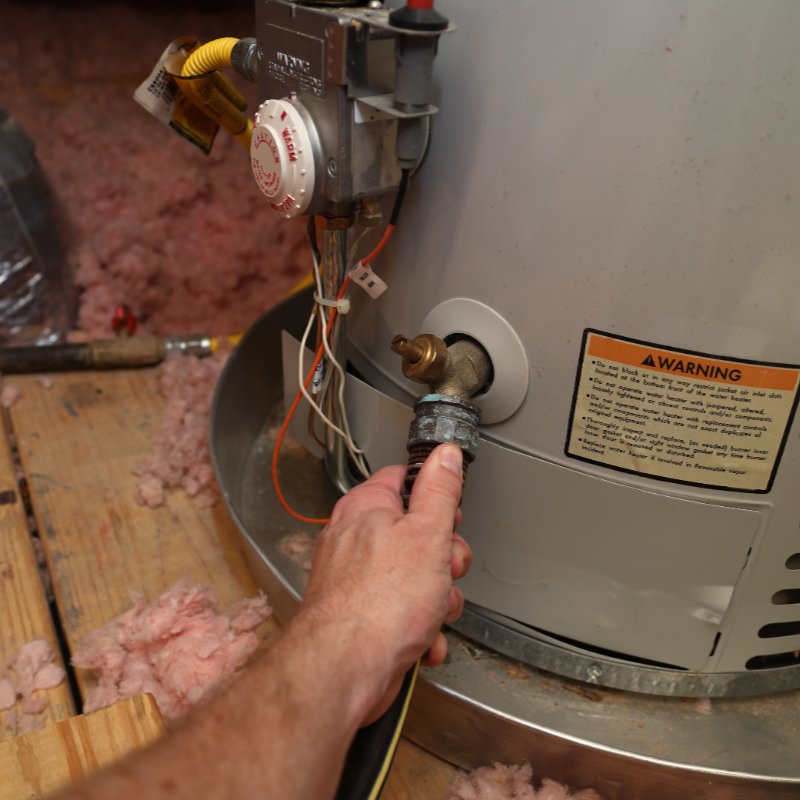Usual Heater Issues Explained
Usual Heater Issues Explained
Blog Article
We have stumbled on the article pertaining to Water Heater Repair and Troubleshooting below on the net and decided it made good sense to discuss it with you in this article.

Imagine beginning your day without your regular hot shower. That currently sets a bad tone for the remainder of your day.
Every home requires a dependable water heater, but just a couple of know exactly how to handle one. One very easy means to keep your water heater in leading shape is to check for faults frequently and also repair them as soon as they show up.
Keep in mind to switch off your water heater before sniffing around for mistakes. These are the hot water heater faults you are most likely to experience.
Water too warm or also cool
Every hot water heater has a thermostat that figures out exactly how hot the water obtains. If the water entering into your home is also hot despite establishing a hassle-free maximum temperature, your thermostat could be defective.
On the other hand, too cold water might be due to a failed thermostat, a damaged circuit, or incorrect gas circulation. As an example, if you use a gas water heater with a damaged pilot light, you would get cold water, even if the thermostat remains in perfect condition. For electric heaters, a blown fuse may be the perpetrator.
Not nearly enough hot water
Hot water heater been available in several dimensions, relying on your warm water needs. If you run out of hot water before everybody has actually had a bath, your water heater is too little for your family size. You must take into consideration installing a larger water heater tank or opting for a tankless hot water heater, which takes up less area as well as is more sturdy.
Weird noises
There go to least 5 kinds of noises you can learn through a water heater, yet the most usual interpretation is that it's time for the hot water heater to retire.
Firstly, you need to be familiar with the typical appears a hot water heater makes. An electric heater might sound various from a gas-powered one.
Standing out or banging noises usually mean there is a piece of debris in your tanks, and it's time to cleanse it out. On the other hand, whistling or hissing noises may merely be your valves allowing some stress off.
Water leaks
Leaks can come from pipelines, water links, valves, or in the worst-case circumstance, the tank itself. With time, water will certainly wear away the storage tank, and locate its way out. If this happens, you require to replace your water heater as soon as possible.
Nonetheless, before your adjustment your entire container, be sure that all pipes remain in location and that each valve functions completely. If you still require help recognizing a leak, call your plumber.
Rust-colored water
Rust-colored water suggests one of your hot water heater parts is corroded. It could be the anode rod, or the container itself. Your plumber will be able to determine which it is.
Lukewarm water
Despite just how high you set the thermostat, you won't get any warm water out of a heater well past its prime. A water heater's efficiency may decrease with time.
You will also obtain warm water if your pipelines have a cross link. This indicates that when you activate a faucet, warm water from the heating unit streams in alongside normal, cold water. A cross link is simple to spot. If your hot water taps still follow shutting the water heater shutoffs, you have a cross connection.
Discoloured Water
Rust is a significant root cause of filthy or discoloured water. Rust within the water container or a falling short anode rod could create this discolouration. The anode pole safeguards the tank from rusting on the inside and need to be checked yearly. Without a pole or an effectively working anode rod, the warm water swiftly corrodes inside the container. Get in touch with an expert hot water heater service technician to identify if changing the anode pole will certainly repair the trouble; otherwise, change your water heater.
Final thought
Ideally, your water heater can last ten years prior to you require a modification. However, after the 10-year mark, you might experience any of these mistakes a lot more routinely. Now, you should include a brand-new hot water heater to your budget plan.
How To Troubleshoot 3 Common Water Heater Problems in Twin Cities
The Water Heater Is Leaking
A leaky cold water inlet valve A loose pipe fitting A leaky temperature and pressure relief valve A corroded anode rod A cracked tank Turn Off Your Water Heater:
Shut off your gas water heater by turning the gas valve on the unit to the “OFF” position. Shut off your electric water by switching its power off at your electrical panel. Look for a two-pole breaker labeled “water heater” and turn it to the “OFF” position. Move the ball valve connected to the water heater to be perpendicular to the piping at a 90° angle. Look for the Leak:
Depending on whether the water is coming from the tank's top or bottom, you’ll want to look for the leak in different locations.
If the leak comes from the top of the tank, carefully look for water escaping from the cold water inlet valve or loose pipe fittings. Rusted hot and cold water valves can have loose connections with the tank, with water leaking out of them.
https://mspplumbingheatingair.com/blog/how-to-troubleshoot-3-common-water-heater-problems
We had been made aware of that editorial on Water Heaters Problems through an acquaintance on a different site. So long as you enjoyed reading our post if you please do not forget to share it. Thank you so much for your time invested reading it.
Overflow? Seek assistance. Report this page